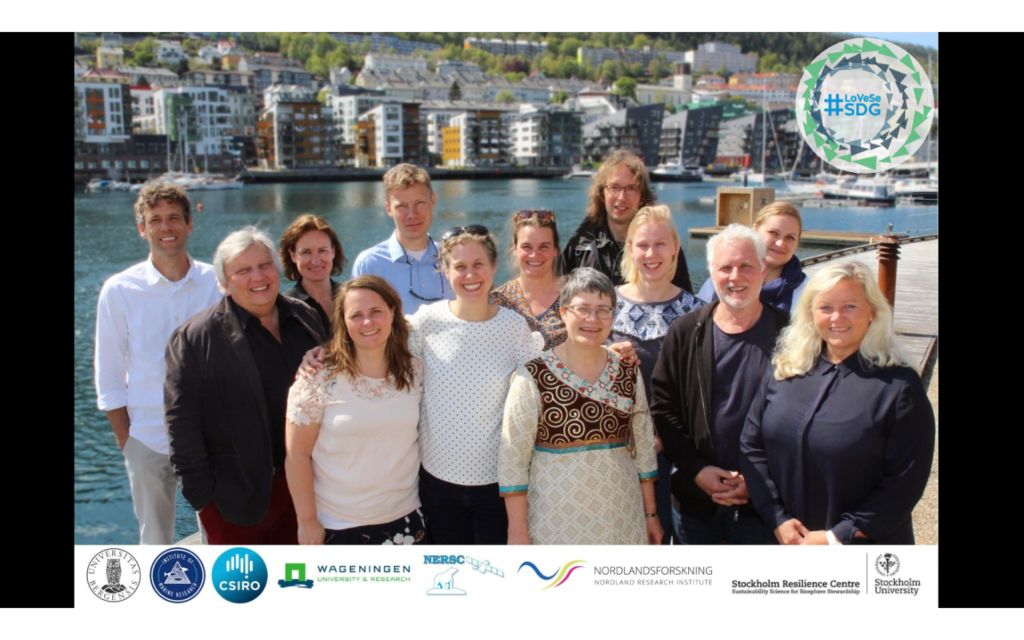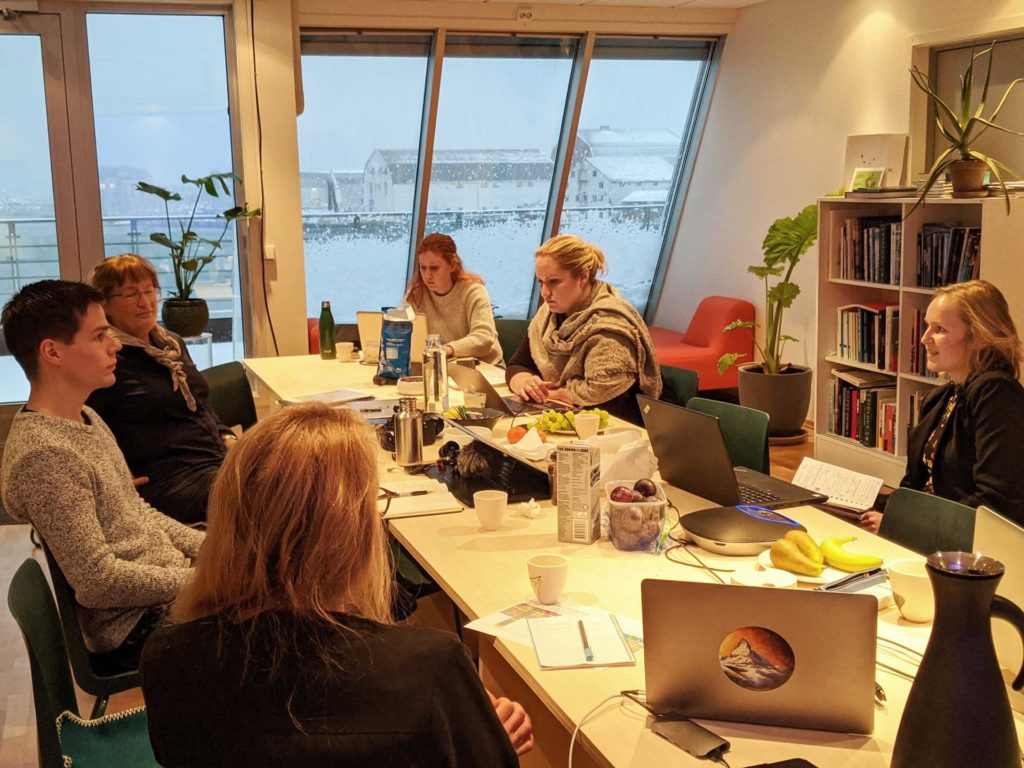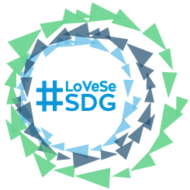—
The Team
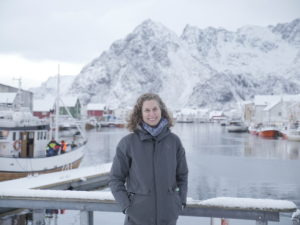
Dorothy J. Dankel, PhD, is the principal investigator for the #LoVeSeSDG project, located in the Department of Biological Sciences and the Ocean Sustainability Bergen group at the University of Bergen campus at Marineholmen. Dorothy is also an affiliated researcher to the Center for Climate and Energy Transformation (CET) and Center for Sustainable Area Management (CeSAM) at UiB. Dorothy’s research applies Responsible Research and Innovation (RRI) theories and methods in marine science-policy contexts. Dorothy is also vice-Chair of the the Nordic Marine Think Tank and past-Chair and current member of the International Council for the Exploration of the Sea (ICES) Working Group on Maritime Systems. Dorothy has had research fellowships at the International Institute of Applied Systems Analysis (IIASA) and the School of Marine Science at the University of Massachusetts, Dartmouth (SMAST). Dorothy is also a member of the Scientific Advisory Committee of the Gulf of Maine Research Institute (GMRI).
She currently leads the #LoVeSeSDG project on localizing the the UN Sustainable Development Goals and is involved in several other research projects that apply RRI in technology fields that include CRISPR gene-edited salmon, carbon capture and storage (CCS), aquaculture sensor systems, and trade-offs among aquaculture, fisheries and offshore wind technologies.
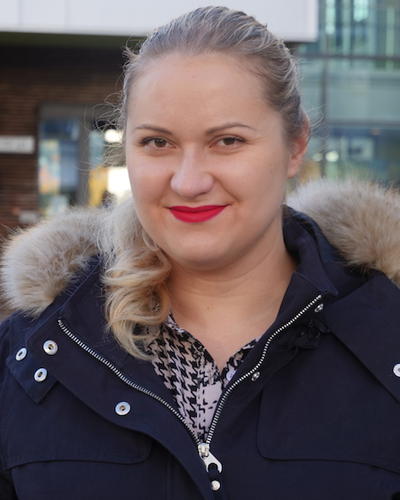
Jessica Fuller is a PhD candidate within the #LoVeSeSDG project. Jessica works within an extended peer community of natural scientists, social scientists, stakeholders and local government officials to actively localize SDG targets and indicators and to harmonize decision-making processes. Her study area is Andøy Municipality in Vesterålen, Norway.
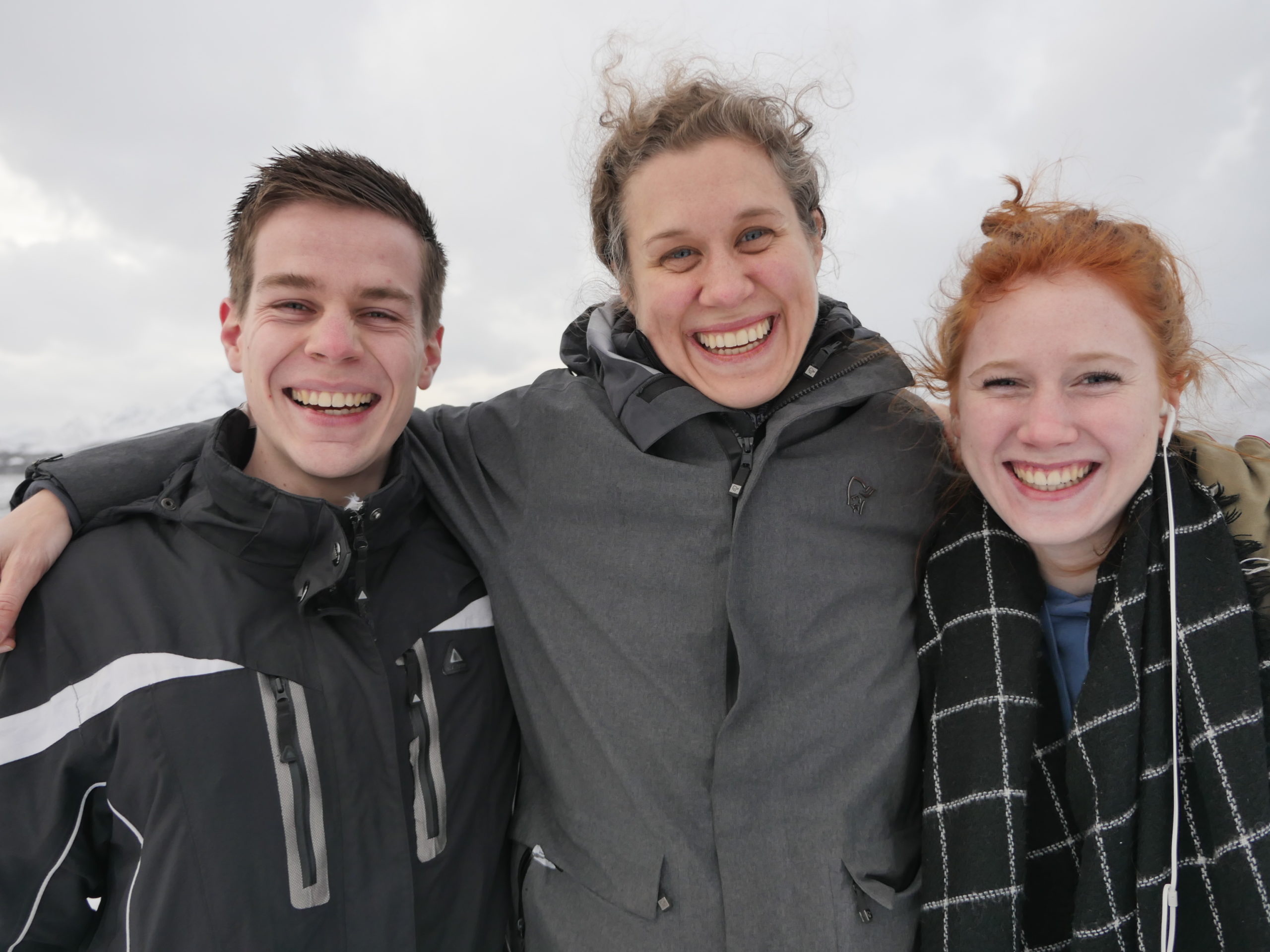 Anoek Meijer and Joren Room interned in the project September 2019–January 2020 as ERASMUS+ trainees from van Hall Larenstein School of Applied Sciences in Leeuwarden, the Netherlands. Anoek came to Dorothy’s lab particularly interested in mapping and understanding the social, economic and cultural context of future offshore wind in the islands Lofoten, Vesterålen and Senja, our study area in Northern Norway while Joren came with his interest in marine mammals and pollution linkages to SDG Target 14.1 “Reduce Marine Pollution”.
Anoek Meijer and Joren Room interned in the project September 2019–January 2020 as ERASMUS+ trainees from van Hall Larenstein School of Applied Sciences in Leeuwarden, the Netherlands. Anoek came to Dorothy’s lab particularly interested in mapping and understanding the social, economic and cultural context of future offshore wind in the islands Lofoten, Vesterålen and Senja, our study area in Northern Norway while Joren came with his interest in marine mammals and pollution linkages to SDG Target 14.1 “Reduce Marine Pollution”.
While active members of the #LoVeSeSDG project team, Anoek and Joren were exposed to multi-, inter- and transdisciplinary approaches in marine spatial management. Anoek helped set up and coordinate a new database of Norwegian citizen public hearing on offshore wind and worked proactively and seamlessly with professors from the Law Faculty (Professor Sigrid Eskeland Schütz) and the Faculty of Humanities (Professor Kjersti Fløttum) to create this database which she used to analyze how Norwegian sectors, businesses and private citizens framed the word “co-existence” in regard to offshore wind energy development. This database was an important section in her intern project report “Multi-use of Marine Space in Norway.”
During his internship Joren teamed up with the dCod 1.0 project team in the Marine Toxicology group, lead by Professor Anders Goksøyr. Joren’ took a very deep dive into cataloguing and abalyzing the work of the Institute of report “Exploring the Integration of SDG Target 14.1 ‘reduce marine pollution’ information and experts as well as the LoVeSe area in ICES Integrated Ecosystem Assessment for the Barents Sea” took
During their internships, Anoek and Joren accompanied Dorothy, Jessica and Karin Berentsen on a 10-day trip to Northern Norway in late January 2020. On this low-carbon trip we stopped in Tromsø, Lofoten and Vesterålen for meetings and workshops with local researchers, marine spatial planners, coordinators and local governors, among others, to understand the study context of the #LoVeSeSDG project. This trip offered them the opportunity to gain more insight for their project reports and more experience with practical field work skills and 1-on-1 interviews. We thank Joren and Anoek for their service to the project!
Work package leaders
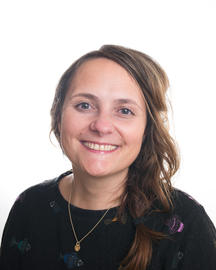
Senior Researcher Dr. Maiken Bjørkan from Nordlandsforskning in Bodø, Norway, who is an expert on social science and societal engagement researcher leads WP1 on “DISCOURSE”
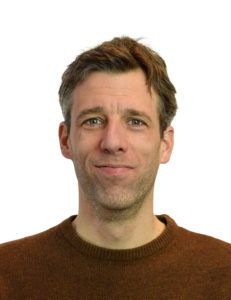
WP2 on “CULTURES” is led by Dr. Wijnand Boonstra from Stockholm Resilience Center, Stockholm University and now Uppsala University brings expertise in bio-cultural sustainability of seascapes, particularly suited to address the main objectives of #LoVeSeSDG.
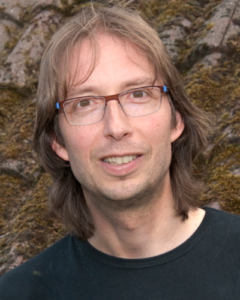
Professor Jeroen van der Sluijs from the Center for the Study of the Sciences and the Humanities at UiBis leader of WP3 “KNOWLEDGE QUALITY”
Others in the Norwegian-based consortium include an inter-faculty academic team from the University of Bergen, government institution scientists from the Institute of Marine Research (IMR) in Bergen and in Tromsø led by Drs. Mette Skern-Mauritzen and Erik Olsen. The consortium further consists of Lisbeth Iversen from the Nansen Environmental and Remote Sensing Center, Karin Berentsen from ARCT AS and Professor Jeppe Kolding from the Department of Biological Sciences at UiB. The project will have cooperation with key aspects of the Norwegian Management Plan of the Barents Sea “Management Forum” and “Monitoring Group” through Gro van der Meeren and Dr. Per Arneberg (IMR-Tromsø) also co-Chair of case study WGINOR. The project will use national research expertise by drawing on knowledge from researchers and managers from the Univ. of Tromsø, the NTNU in Trondheim, the Norwegian University of Life Sciences, and the Univ. of Oslo, through invitations to work package-sponsored workshops.
This project includes the leading researchers in ecosystem-based management, Integrated Ecosystem Assessments, and in particular those with expertise on Arctic fisheries, cultural heritage and climate change. From CSIRO in Australia, we have ecosystem economist Dr. Ingrid van Putten. Marine social scientist Dr.Marloes Kraan from Wageningen University, Environmental Policy Group in the Netherlands. Both Ingrid and Marloes co-supervise our PhD student, Jessica Fuller, on the underlying cultural heritage and social science-policy interface issues.
The Advisory Board:
Our Advisory Board has deep, international experience in science for policy, climate change policy discourse and quantitative integrated assessment implementation.
Namely, Dr. Henrik Österblom (Science Director of the Stockholm Resilience Center and co-founder of Seafood Business for Ocean Stewardship (SeaBOS) initiative), Prof. Peter Haugan (Expert Group on the UN Panel for a Sustainable Ocean Economy, IMR Research Director and former UN IOC Chair), Prof. Kjersti Fløttum (text theory and discourse analysis), Ingrid van Putten (ecosystem valuation economist CSIRO, Australia).
We will work closely with our key colleagues at the ICES Secretariat in Copenhagen, SALT in Svolvær and Ramberg, Andøy Kommune in Vesterålen and Nordland Fylkeskommune in Bodø.
